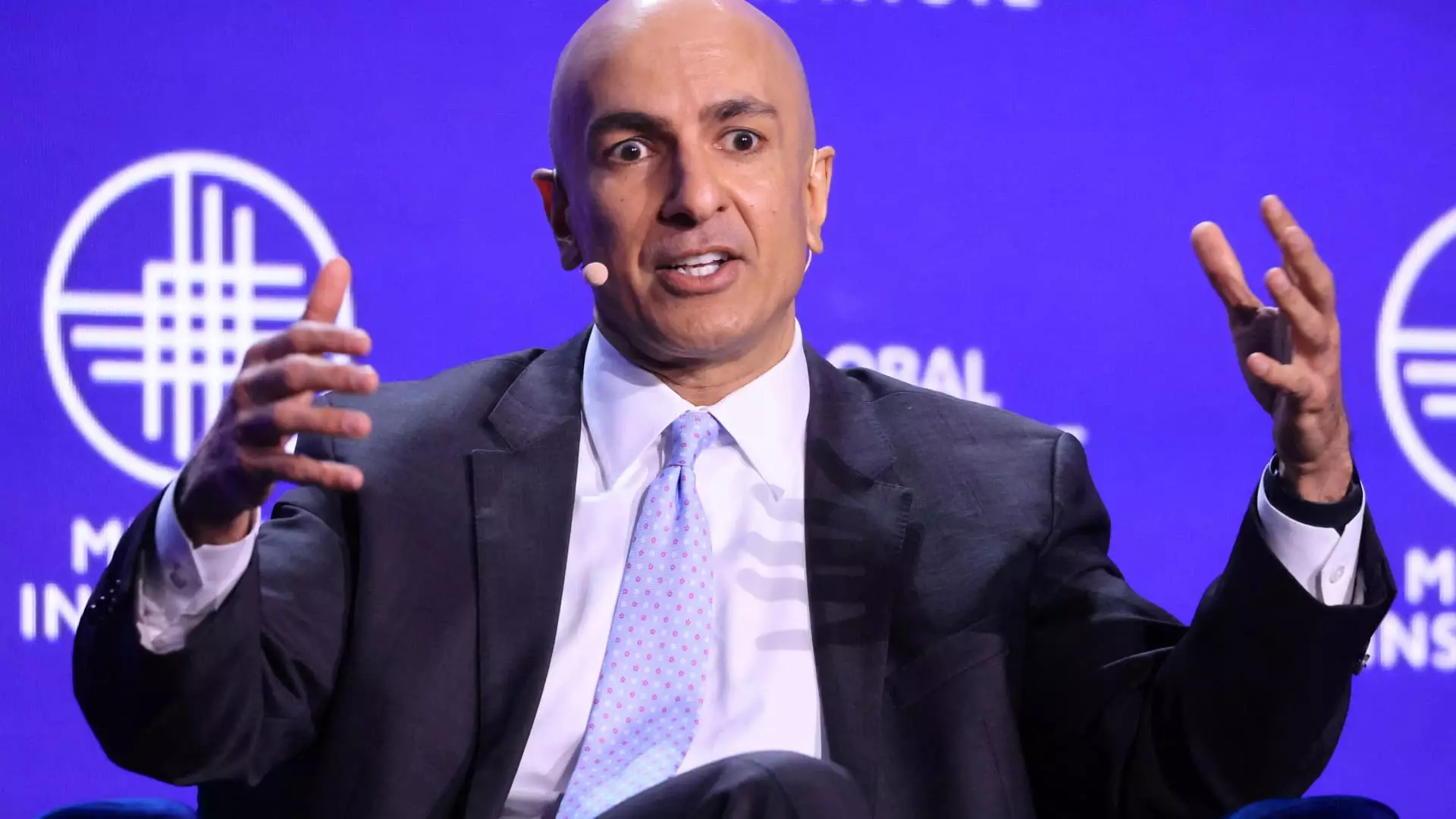Neel Kashkari, President of the Minneapolis Federal Reserve, recently articulated concerns regarding the long-term inflationary consequences of President-elect Donald Trump’s proposed tariffs. Speaking on CBS’ “Face the Nation,” Kashkari emphasized that while one-time tariffs may have a limited immediate effect, the potential for escalating trade tensions could lead to sustained inflationary pressures. This perspective underlines a critical economic principle: protectionist measures can have ripple effects throughout the global economy.
Kashkari highlighted the scenario where tit-for-tat tariffs could emerge; one country’s protective measures provoke retaliation, which could spiral into a broader trade war. The historical context is notable—Trump’s previous trade confrontations, particularly with China, exemplify this. His tenure saw a series of import taxes that sparked a response from China, leading to a tit-for-tat escalation that not only rattled markets but also complicated supply chains, ultimately impacting prices domestically.
Trump’s ambitions for a second term include sweeping tariff proposals, notably a significant 60% increase on Chinese imports. The ramifications of such economic policies are worrisome, particularly in light of recent progress in reducing inflation rates from pandemic heights. Economists and industry leaders have voiced their apprehensions about these aggressive trade strategies potentially stalling economic recovery and pushing inflation back upward.
Kashkari pointed out that although recent indicators suggest a downward trend in inflation, it is premature to declare victory over rising prices. His cautious optimism reflects the complexity of the economic landscape, where the interplay of fiscal policies and global economic pressures must be carefully navigated.
On a proactive note, the Federal Reserve has been taking steps to adjust monetary policy in response to evolving economic conditions. Recently, the Fed implemented its second consecutive interest rate cut as inflation moves closer to its 2% target. Kashkari’s expectation of another rate cut in December underscores the Fed’s flexible approach to monetary policy, contingent upon forthcoming economic data.
The intersection of Trump’s policies and the Fed’s decisions reflects a larger debate about political influence on economic governance. While Trump and his supporters, including high-profile figures such as Elon Musk, have called for a more interventionist role in Fed policy, Kashkari maintains that the central bank’s independence is crucial for effective monetary management.
The intersection of Trump’s tariff proposals and Kashkari’s insights signals a time of uncertainty for the U.S. economy. While the immediate impacts of tariffs may be manageable, the potential for an extended trade conflict poses a significant risk. As economic leaders like Kashkari advocate for a careful, data-driven response to policy changes, the overarching message is clear: navigating the uncertain waters of trade policy will require a vigilant and balanced approach to ensure sustained economic growth and stability.

